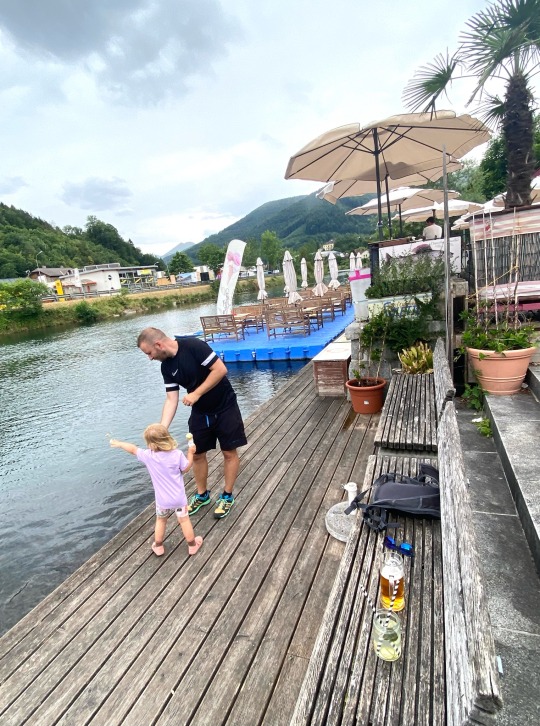#Lilienfeld
Text

#idk if any of the ppl running this even have tumblrs so I'm just gonna post this#u should all come hang out#live music#music#twitch#stream#live#headless blood idol#show#video#underground#artist#dusk rose#lilienfeld#boseby#gamor vapor#da tengu god#wurm#violence mars#elias and the error#download history#traumacorp se#dj hypergiant#waavypanda#teen smoking#cruel hunnies#magenta skull#saturday#night#hope I didn't misspell anybody lolol
8 notes
·
View notes
Text
Ardagger - Frühstücksnews - Dienstag, 16.5.2023
Sehr geehrte Gemeindebürgerin! Sehr geehrter Gemeindebürger!
Im Betriebsgebiet NORD muss wegen einer Baustelle heute eine Wasserleitung neu verlegt werden. Dafür ist eine rund 4stündige Abschaltung der Wasserversorgung in diesem Bereich erforderlich. Bitte um Verständnis. Die Abschaltung dort wird zwischen 13.00 und 17.00 Uhr stattfinden und folgende Bereiche direkt oder indirekt betreffen. Bitte…

View On WordPress
#Bauernbund#Bürgermeister#Bezirk#Bezirksobmann#Christine und Franz Keusch#Erneuerbarer Strom#Gemüse#Jugend#JVP#Kollmitzberg#Lilienfeld#Lourdes#Michael Wurmetzberger#Minihofladen#Muttertag#Natur#Pflanzen#Soldatenwalfahrt#Soziale Absicherung#Spruch des Tages#Stephanshart#Walfahrt#Windkraft#Windkraftanlagen
0 notes
Text
The human body, after all, is about 80% water, so perhaps the moon works its mischievous magic by somehow disrupting the alignment of water molecules
Following Aristotle and Pliny the Elder, some contemporary authors, such as Miami psychiatrist Arnold Lieber, have conjectured that the full moon’s supposed effects on behavior arise from its influence on water. The human body, after all, is about 80 percent water, so perhaps the moon works its mischievous magic by somehow disrupting the alignment of water molecules in the nervous system.
— Hal Arkowitz & Scott O. Lilienfeld, from “Lunacy and the Full Moon. Does a full moon really trigger strange behavior?” (Scientific American, February 1, 2009) (via Cultural Offering)
7 notes
·
View notes
Text
By: Peter Boghossian
Published: Feb 25, 2020
Social Justice is a dangerous, illiberal ideology that is taking over society. Although often associated with “liberalism” in the United States, it is explicitly anti-liberal. One of the core pillars of Critical Race Theory, upon which one dimension of Social Justice ideology rests, is a critique of liberalism, where “critique” is meant as Karl Marx used it and “liberalism” is the broad philosophy of individual liberty upon which the United States was founded.
One of the easiest ways to understand how illiberal Social Justice can be is available to anyone who attempts to criticize it. Those who criticize Social Justice are not thanked for helping to improve its tenets. Rather, they’re called bigots, homophobes, Nazis, grifters, misogynists, or, the trump card meant to silence all conversation: racists.
Proving its commitment to illiberalism even further, when the accused denies these accusations and demands evidence to substantiate claims that they’re racist, this denial is taken as evidence of guilt. To ask for evidence of racism is considered a form of willful ignorance of racism, according to Social Justice. Then, when the accused points out the obvious, that name calling isn’t an argument and they’d like to have a conversation about the manifestation of Social Justice that led them to be accused in the first place, nobody comes forward to converse. In the Social Justice ideological paradigm, conversing with someone who’s been accused of being a racist, sexist, or bigot would be acting in complicity with racism. (There’s even a word in their lexicon for this, “platforming.”) So conversation is a priori ruled out.
But Social Justice’s illiberalism is actually far worse. In many situations, because nobody comes forward to speak with the accused—in spite of the fact that he has pleaded with adherents and enforcers of Social Justice ideology to have a conversation—a narrative is then constructed that paints the accused as someone who does not want to have a conversation with anyone with whom he disagrees. Moreover, this is often reframed as the accused being unwilling to have a conversation about racism!
And this is exactly what has happened to me. I have called out Social Justice ideology for being dangerous, illiberal, and unjust. I have stated that it’s an ideology for which not only is there at best scant evidence for its particular claims, but there is actually an entire body of established scientific literature (biology, up against gender studies and queer theory, for example) that contradicts many of its underlying assumptions (e.g., that differences between men and woman are entirely social constructs). I have asked my colleagues and the administration at Portland State University, where I teach, to provide evidence for policies and practices that may be institutionalized (trigger warnings, safe spaces), and I have sent them evidence (Scott Lilienfeld’s or Jon Haidt and Greg Lukianoff’s work) that contradicts these policies. I’ve either been ignored, or ridiculed, or told I’m committing a microaggression and making people feel unsafe. Requests for evidence have even been characterized as having caused them trauma.
From the outside, of course it looks like I’m not having conversations with those who have substantive disagreements, but this is because in Social Justice communities if anyone has a conversation with me they’re contributing to a platform where their claims about reality can be questioned and where alternative views can be explained. And why would they want to do that, given the moral certitude they place in their conclusions? They wouldn’t, especially because Social Justice has been remarkably effective at spreading throughout the society—government (see Benjamin A Boyce’s videos on YouTube), media, tech (note the controversy around the infamous “Google memo”), and, quintessentially, the academy.
The unwillingness of Social Justice adherents to speak with me—or others who challenge their doctrines—does not stop them from accusing me of not wanting to speak with them. In fact, it escalates those accusations. This is because the primary method of Social Justice is to accuse, whether true or false, sensible or insensible, and to manipulate everything that follows into further accusations.
Sadly, this is exactly the response one would predict given that Social Justice ideology is highly aggressive, intrinsically political, and completely in conflict with science, evidence, and reason. If it were backed by science, evidence, and reason, science evidence and reason would be presented in conversation and there would be no need to call anyone names or accuse people who want to have conversations of not wanting to have conversations. The Social Justice canons would also not need to build an infrastructure that insulates itself from criticism and uses name calling and accusation as the primary tool to dispense its ideological enemies. Rather, it would encourage dialogue, conversation, and even debate. Instead, it sees discourse not as an effective means for determining truth but as yet another political project to oppress people.
Social Justice cannot continue to be taken seriously on its own terms, which it has literally made up. It must be taken seriously in terms of the threat it poses to liberal and civil society, which it is actively undermining and seeks to destroy. I am just one man, of course, but the problems I’m facing are becoming commonplace throughout society—in workplaces, schools, academia, hobby groups, online, and even in churches. As Social Justice creeps into everything and rewrites it with illiberalism, accusations, unfairness, and a conspicuous refusal to have a reasoned conversation about anything it proposes, we put ourselves and our societies at tremendous risk of losing the norms civil society needs to function. We must stand up to Social Justice ideology. We must fight. New Discourses is helping us do exactly that.
==
Remember when people were still saying this wasn't happening, and anyway, if it was happening, it wasn't happening outside the academy? Ah, the days before the Summer of Riots. Good times.
#Peter Boghossian#social justice#criticial social justice#anti science#authoritarianism#woke#wokeness#wokeness as religion#cult of woke#wokeism#illiberalism#liberal ethics#liberalism#religion is a mental illness
7 notes
·
View notes
Text
The absolutely ridiculous rabbit-holes I get led down when making connections in Soulsborne lore…I swear…
Here was today’s spiral staircase of madness!

It started with reading about Lund Cathedral and how it was dedicated to Saint Lawrence, the guy that distributed alms to the poor in his life and was martyred on a bed of coals. (Turn me over, I’m done on this side!)
Then I start reading about the astronomical clock in Lund Cathedral and notice a speculation about its possible creator—Nikolaus Lilienfeld. Remembering the cursed astronomical clock in Prague, allegedly built by Mikuláš…I start reading about Mr. Lilienfeld because of the Mikuláš/Nikolaus name connection.
Turns out Mr. Lilienfeld probably didn’t build the clock in Lund Cathedral, but he did build the one in St. Nicholas Church, Stralsund.
I then look up said church.
I discover it’s dedicated to St. Nicholas of Myra, the dude Santa Claus was inspired by. But I don’t care about him, because I notice the name Myra and think, “Lucatiel of Mirrah” lol.
IT’S NOT EVEN THE SAME NAME.
(Brainrot is bad).

I then proceed to read about Myra, which brings me to notice the connections it has to Lycia. Kale was mentioned in sequence as well.
Brainrot returns. I now have three character names in mind—
Lucatiel of Mirrah, Licia of Lindelt, and Merchant Kalé.
Brushing these off as unlikely to be connected, I continue to read about Myra. But I can’t help it and start reading about Lycia too.
I discover a well-known neighboring province of Lycia—Caria.
I start reading about Caria and come across the story of Artemisia II of Caria, commander of the Carian fleet and ruler of Caria after the death of her brother-husband, Mausolus. She was known for being a powerful female ruler and naval strategist, as well as being especially affected by the death of her husband.
Her grief was so powerful, that there are depictions of her consuming her husband’s ashes from a cup. (I wonder if she had a rebirthing egg too.)

At this point, I’m just confused, because I thought I knew about Artemisia…the famous commander of the fleets…the one that helped Xerxes…she was a favorite historical figure of mine?
But then I realize I’m thinking of Artemisia I and not II.
So then I read about Artemisia I of Caria, the other Carian queen. She helped the Persian king Xerxes I invade Greece and commanded a fleet of her own, most famously in the Battle of Salamis.
A this point, I’m thinking…okay, got it. I’m all caught up. Then I see the names of the islands that Artemisia I ruled. And it starts all over again.
Halicarnassus, Nisyros, Kalymnos, and…Kos.
I swear to the gods that I will stop. I try to pull away, but nope.

Ah Kos, or some say Kosm. (They don’t). I read about the island’s history. It’s most famously speculated to be the homeland of Hippocrates himself, father of medicine and all that. He has a dream temple on the island? (Dream temples are…a whole thing).
There’s a lot of seaside villages there. I was of course, looking for any particular incident’s of *cough* massacre *cough* in the island’s history, but I only found one during World War 2 where General Friedrich-Wilhelm Müller of the German army ordered the deaths of several Italian POWs.
It *is* called the Massacre of Kos, but it’s not similar enough to make a connection. Sigh.
So anyway, that also led me to discover a wargaming book called, “Swords of Kos Fantasy Campaign Setting” by Michael O. Varhola. Now I know that exists, I guess.
I have my obsessive brainrot to thank for leading me down this absurd rabbit hole, only to discover an extremely obscure wargaming book.
Unbelievable.
Now I just gotta decide which connections I actually made and which were just some halfway similar historical events. I love being a Soulsborne freak.
#the worst part is#i already have read about these locations and people in the past#I studied plenty of history but of course i retain it better when i can relate it to my favorite video game series#deep sigh#anyway i’m insane#soulsborne#laurence the first vicar#rennala queen of the full moon#lucatiel of mirrah#mother kos#bloodborne lore#elden ring lore#CrowNotes
26 notes
·
View notes
Note
Saying you can have did/osdd without trauma is like saying you can have PTSD without trauma.
First, obligatory: Most endogenic systems don't claim to have DID or OSDD.
Second, this really depends on how you define "trauma" and "PTSD."
The DSM actually has a very strict definition of trauma that doesn't include things that may cause PTSD symptoms.
Not only is trauma insufficient to trigger PTSD symptoms, it is also not necessary. Although by definition clinicians cannot diagnose PTSD in the absence of trauma, recent work suggests that the disorder’s telltale symptom pattern can emerge from stressors that do not involve bodily peril. In 2008 psychologist Gerald M. Rosen of the University of Washington and one of us (Lilienfeld) reviewed data demonstrating that significant PTSD symptoms can follow emotional upheavals resulting from divorce, significant employment difficulties or loss of a close friendship. In a 2005 study of 454 undergraduates, psychologist Sari Gold of Temple University and her colleagues revealed that students who had experienced nontraumatic stressors, such as serious illness in a loved one, divorce of their parents, relationship problems or imprisonment of someone close to them, reported even higher rates of PTSD symptoms than did students who had lived through bona fide trauma. Taken together, these findings call into question the long-standing belief that these symptoms are tied only to physical threat.
In light of these and other data, some authors have suggested that the PTSD diagnosis be extended to include anxiety reactions to events that are stressful but not terrifying. Yet such a change could lead to what Harvard University psychologist Richard J. McNally calls “criterion creep”—expanding the boundaries of the diagnosis beyond recognition. This and other controversies aside, recent results raise the possibility that PTSD is a less distinctive affliction than originally thought and that its symptoms may arise in response to a plethora of intense stressors that are part and parcel of the human condition.
So while you technically can't have PTSD without trauma, because you need trauma to be diagnosed with PTSD, you can have all the symptoms of PTSD from what might be considered nontraumatic stressors, and have those symptoms even be stronger than those of what the DSM considers "real" trauma.
I don't say this to invalidate anyone's trauma. Only to point out a fatal flaw in the DSM and how disorders are defined, which often have as much to do with bureaucracy as mental health. People put way too much stock in diagnostic labels.
My personal definition of trauma would include any events that cause PTSD symptoms, but that's not how the term is used in the DSM. There are many other definitions as well,
Now, using that definition instead of the harmful DSM definition, the question of DID and OSDD is still a complicated one and I remain open-minded.
As of right now, it's hard to know if trauma is always the cause or just heavily associated with it.
One problem with studies is that variables can sometimes be correlated without necessarily being caused by one another. An example of this might be the third variable problem, where there's a third variable that causes multiple things to appear correlated, like how shark attacks are heavily correlated with ice cream sales. (The cause of both is Summer time. People buy more ice cream and go swimming on the beach more in Summer.)
Is that what's happening here?
No. I don't think it is.
The correlation is too strong, and it's unlikely there would be a third variable that would cause both trauma and dissociation.
But I think it might be worth considering an indirect causal relationship. With a direct relationship, A causes B. With an indirect causal relationship, A causes B which causes C.
The shark example is exactly a good demonstration of this. Summer weather causes more people to go swimming at the beach. More people swimming at the beach makes it more likely people will get attacked by sharks. There is a clear causal link between A and C, but that's because A causes B which causes C in turn. This allows you to affect the result by altering the middle variable. For example, if you close the beaches during the Summer but leave them open the rest of the year, you'll decrease the number of shark attacks in the Summer and see them increase at other times.
In the case of DID, many psychiatrists will frequently point to avoidant behavior increasing dissociative compartmentalizing between alters.
So maybe that could be the more direct initial cause too, and the model isn't a simple "trauma -> dissociative compartmentalization" but "trauma -> avoidant behavior -> dissociative compartmentalization."
In this case, it's possible that dissociative disorders could form without trauma, and it's just rare because the avoidant behavior necessary is usually only a trauma response. After all, why would a healthy person want to block out their memories and experiences so badly over a long period of time? But just because it wouldn't be common doesn't make it impossible.
What we can know for certain is trauma is highly correlated with dissociative disorders. But whether the causation is direct or indirect still remains a mystery.
And it's one that will likely remain impossible to solve. While it might be relatively simple to devise an experiment based on having children engage in avoidant behavior to see if DID developed without trauma, trying to give someone a mental disorder would be highly unethical.
And while there are plenty of DID systems who don't remember any traumatic experiences, the nature of DID blocking out memories makes those testimonies unreliable.
If I may ask, why is it so important that all instance of DID and OSDD be trauma based?
Major Depressive Disorder is often caused by trauma, but the fact that you can have MDD without trauma isn't treated as if it invalidates the trauma of everyone whose depression is traumagenic.
So why must some systems feel like if other systems had DID without trauma, it would somehow invalidate their own?
#ask box#syscourse#psychology#psychiatry#endogenic#pro endo#pro endogenic#system#systems#multiplicity#system stuff#psych critical#dsm#trauma#plural#plurality#plural system#actually a system
16 notes
·
View notes
Note
Hello! Do you have any recommended books on psychology when starting out? I've been wanting to learn it and I saw from your bio that you're a psych major. No pressure tho!Thank you!
Uhhhhh, I don’t know about ‘starting out’, do you mean beginners books? Most of the books I have now aren’t really for beginners, and I can’t remember any earlier books that I read before. I hope you don’t mind...
Also, since I’m planning on becoming a psychiatrist, the books I’ll be listing down will be a mix of neuroscience, neurobiology, neuropsychology, biological psychology, etc., rather than just strictly psychology.
1. DSM 5
AKA, the Diagnostic and Statistical Manual of Mental Disorders. This is like... the bible for psychologists and psychiatrists. It has all the updated info about mental disorders and it’s mainly used to help them make diagnoses. However, do NOT use this to diagnose yourself and others since you’re not a professional. For now, treat it as a textbook to help you learn about all the different disorders. Don’t use it a guide to diagnose people because you can’t do that.
Also, don’t bother with the earlier editions. The latest one, the fifth, is the most recent and updated. The others have really outdated and even harmful information (I think it was second edition that literally stated that homosexuality was a ‘mental illness’??) Yeah, ew, so pls don’t read the older ones.
2. Science and Pseudoscience in Clinical Psychology (2nd ed), edited by Lilienfeld, Lynn, & Lohr
This is basically an anthology that examines various research methods, assessments, therapy, and other practices in clinical psychology. Most of them, if not all, are controversial BUT THEY ARE STATED TO BE. The main purpose is to talk about really popular and widely used practices that people use on patients, but are super shady because of the lack of empirical research.
So there’s gonna be a lot of talk about using herbal remedies for mental disorders even though there’s very little evidence of it helping, sending alcoholics to Alcoholics Anonymous even though that organization’s more of a religious cult than a group that actually helps them with their addiction, etc. They talk about the Myers-Briggs Type Indicator (the one with the INTJ, ESFP, stuff) and how inaccurate it is too.
It’s super informative and worth reading because these are all popular practices that people think work, but they actually don’t.
3. Abnormal Psychology (14th ed) by Kring and Johnson
A whole book about mental disorders, how to treat them, what medications are needed, what factors cause them (societal, environmental, genetics, biological), and symptoms (directly taken from the DSM 5).
Out of all the books I listed down, this is probably be the easiest to read and understand.
4. Biological Psychology (13 ed) by Kalat
Lots of neurological stuff in here, so this book is moreso if you’re into psychiatry than solely psychology. This book’s primarily about applying biological principles to explain human behavior (or psychology). According to my old professor, this is the best book to teach how the mind-body phenomenon works and I agree with him. This book pretty much helped me understand what’s going on within our body when we have certain mental disorders.
8 notes
·
View notes
Text
Psychopath Presidents
By Jeremy Dean, Psyblog (Jan 3, 2023)
Theodore Roosevelt and JFK top the list of US presidents with the highest ‘positive’ psychopathic tendencies.
Two Roosevelts, JFK and Reagan top the list of most psychopathic presidents, research finds.
Of the 42 presidents up to and including George W. Bush, here are the top 10 according to a study by Lilienfeld et al. (2012):
https://psycnet.apa.org/record/2012-19403-001?doi=1 (Stiudy)
Theodore Roosevelt (1.462)
John F. Kennedy (1.408)
Franklin D. Roosevelt (1.079)
Ronald Reagan (.912)
Rutherford B. Hayes (.824)
Zachary Taylor (.671)
Bill Clinton (.569)
Martin Van Buren (.554)
Andrew Jackson (.516)
George W. Bush (.391)
The higher the scores in brackets, the higher their psychopathic tendencies.
Source: https://www.spring.org.uk/2023/01/psychopath-presidents.php
0 notes
Text
0 notes
Video
youtube
Cardiobalance Kaufen Niederösterreich ⚠️ Cardio Balance Apotheke Niederösterreich ⚠️ Cardiobalance
🇦🇹 Website Österreich: https://at.cardiobalanceoriginal.com/?utm_source=135451
🇩🇪 Website Deutschland: https://de.cardiobalanceoriginal.com/?utm_source=135639
🇨🇭 Website Schweiz: https://ch.cardiobalanceoriginal.com/?utm_source=135641
🇪🇸 Website España: https://es8.cardiobalanceoriginal.com/?utm_source=138133
🇮🇹 Website Italia: https://it11.cardiobalanceoriginal.com/?utm_source=138135
🇵🇹 Website Portugal: https://pt.cardiobalanceoriginal.com/?utm_source=135839
00:03 - cardiobalance 00:16 - cardio balance kaufen Niederösterreich 00:28 - cardio balance stiftung warentest 01:01 - cardiobalance kaufen Niederösterreich 01:14 - cardiobalance kaufen 01:45 - geberich gmbh cardio balance Kärnten 02:27 - geberich gmbh cardio 03:49 - cardo balance 04:09 - cardio balance nebenwirkungen 05:43 - cardio balance geberich Sehen Sie sich auch: Cardio Balance Nebenwirkungen? ⚠️ CARDIOBALANCE ⚠️ Geberich gmbh Cardio Balance Original kaufen https://youtu.be/y6n0aWi3nqQ Cardio Balance Erfahrungen ⚠️ Cardio Balance Stiftung Warentest ⚠️ Cardio Balance Test ⚠️ GEBERICH https://youtu.be/7RLZZHGiQrk Cardio Balance Apotheke ⚠️ Cardiobalance ⚠️ Cardiobalance Website ⚠️ DM ONLINE https://youtu.be/fJqeuV3RVIw teilen Sie: https://youtu.be/n1ZGZED6hf0 Cardiobalance Kaufen Niederösterreich ⚠️ Cardio Balance Apotheke Niederösterreich ⚠️ Cardiobalance Cardiobalance Kaufen Niederösterreich ⚠️ Cardio Balance Apotheke Niederösterreich ⚠️ Cardiobalance cardio balance, cardiobalance, cardio balance Niederösterreich, cardio balance baden, cardio balance stiftung warentest, cardio balance apotheke, cardio balance dm, cardio balance nebenwirkungen, cardiobalance kaufen, cardio balance kaufen, cardio balance amazon, geberich gmbh cardio balance, bodyfokus cardio balance, cardo balance, geberich cardio balance, cardio balance geberich, cardio balance kritik, Baden, Amstetten, Wiener Neustadt, Sankt Pölten, Neunkirchen, cardio balance Baden, cardio balance Amstetten, cardio balance Wiener Neustadt, cardio balance Sankt Pölten, cardio balance Neunkirchen, Cardio Balance Sankt Pölten, Cardio Balance Wiener Neustadt, Cardio Balance Krems an der Donau, Cardio Balance Baden bei Wien, Cardio Balance Mödling, Cardio Balance Amstetten, Cardio Balance Korneuburg, Cardio Balance Schwechat, Cardio Balance Tulln an der Donau, Cardio Balance Perchtoldsdorf, Cardio Balance Stockerau, Cardio Balance Klosterneuburg, Cardio Balance Traiskirchen, Cardio Balance Gänserndorf, Cardio Balance Hollabrunn, Cardio Balance Waidhofen an der Ybbs, Cardio Balance Melk, Cardio Balance Mistelbach, Cardio Balance Zwettl, Cardio Balance Gerasdorf bei Wien, Cardio Balance Horn, Cardio Balance Ybbs an der Donau, Cardio Balance Laa an der Thaya, Cardio Balance Hainfeld, Cardio Balance Lilienfeld, Cardio Balance Neulengbach, Cardio Balance Ebreichsdorf, Cardio Balance Marchegg, Cardio Balance Gloggnitz, Cardio Balance Scheibbs, Cardio Balance Wolkersdorf im Weinviertel, Cardio Balance Pöchlarn, Cardio Balance Langenlois, Cardio Balance Deutsch-Wagram, Cardio Balance Purgstall, Cardio Balance Zistersdorf, Cardio Balance Gföhl, Cardio Balance Götzis, Cardio Balance Fischamend-Markt, Cardio Balance Bruck an der Leitha, Cardio Balance Geras, Cardio Balance Ternitz, Cardio Balance Wilhelmsburg, Cardio Balance Mank, Cardio Balance Retz, Cardio Balance Poysdorf, Cardio Balance Hohenems, Cardio Balance Gumpoldskirchen, Cardio Balance Raabs an der Thaya, Cardio Balance Wieselburg, Cardio Balance Enns, Cardio Balance Zellerndorf, Cardio Balance Groß-Enzersdorf, Cardio Balance Kirchberg am Wagram, Cardio Balance Langenzersdorf, Cardio Balance Maissau, Cardio Balance Eichgraben, Cardio Balance Berndorf, Cardio Balance Herzogenburg, Cardio Balance Krumbach, Cardio Balance Purkersdorf, Cardio Balance Litschau, Cardio Balance Kirchschlag in der Buckligen Welt, Cardio Balance Hainburg an der Donau, Cardio Balance Hainburg, Cardio Balance Neunkirchen, Cardio Balance St. Valentin, Cardio Balance Vösendorf, Cardio Balance Yspertal, Cardio Balance Pottenstein, Cardio Balance Matzen, Cardio Balance Gaming, Cardio Balance Niederleis, Cardio Balance Neudörfl, Cardio Balance St. Pölten, Cardio Balance Gars am Kamp, Cardio Balance Allentsteig, Cardio Balance Sankt Aegyd am Neuwalde, Cardio Balance Paudorf, Cardio Balance Annaberg, Cardio Balance Michelhausen, Cardio Balance Mitterndorf an der Fischa, Cardio Balance Atzenbrugg, Cardio Balance Sieghartskirchen, Cardio Balance Sankt Andrä-Wördern, Cardio Balance Neumarkt an der Ybbs, Cardio Balance Neusiedl an der Zaya, Cardio Balance Maria Enzersdorf, Cardio Balance Bisamberg, Cardio Balance Wullersdorf, Cardio Balance Sankt Peter in der Au, Cardio Balance Großweikersdorf, Cardio Balance Leopoldsdorf im Marchfelde, Cardio Balance Pöggstall, Cardio Balance Hofstetten-Grünau, Cardio Balance Großmugl, Cardio Balance Ollersdorf, Cardio Wilfersdorf.
0 notes
Text
FPÖ-Generalsekretär Hafenecker feiert Dreijahrestag der „Backerbsen-Affäre“
Unzensuriert:»Unter dem Titel „3 Jahre Backerbsen-Affäre“ lädt FPÖ-Nationalratsabgeordneter Christian Hafenecker in seiner Heimatgemeinde Kaumberg, Bezirk Lilienfeld in Niederösterreich, zu einer außergewöhnlichen Feier. http://dlvr.it/Sz58jY «
0 notes
Text
0 notes
Text
Klein-Lkw mit 47 Personen im Laderaum im Bezirk Lilienfeld angehalten | DiePresse.com
0 notes
Text
Cancer Warrior
After two years of courageous battle Laura Batic died
of rhabdomyosarcoma, a highly malignant childhood cancer. “Help me, o God, when Death is near
To mock the haggard face of fear.
That when I fall-if fall I must-
My soul may triumph in the Dust.” (the anonymous poem of a solder)
Special Thanks to :
Town of Lilienfeld, Austria, where Laura was born and lived four years.
Charities: Rays of Sunshine, Clic Sargent and Momentum that contributed and organised for Laura memorable events and gifts to help her coping during treatment, and to The Shooting Star Children’s Hospice who provided care and support to Laura in her last days.
“Ihr habt nun Traurigkeit; aber ich will euch wieder sehen und euer Herz soll sich freuen und eure Freude soll niemand von euch nehmen. (Ev. Joh. 16, 22.) Sehet mich an: Ich habe eine kleine Zeit Muehe und Arbeit gehabt und habe grossen Trost funden. (Sirach 51, 35.) Ich will euch troesten, wie Einen seine Mutter troestet. (Jes. 66, 13.)” fr. Brahms - Ein deutsches Requiem, V. Ihr habt nun Traurigkeit
(John 16:22) And you now therefore have sorrow: but I will see you again, and your heart shall rejoice, and your joy no man taketh from you. (Ecclesiasticus 51:27 ) Behold with your eyes, how that I have but little labour, and have gotten unto me much rest. (Isaiah 66:13) As one whom his mother comforts, so will I comfort you.
0 notes
Text
Download in (PDF) Revel for Psychology: From Inquiry to Understanding -- Access Card BY : Scott O. Lilienfeld
[Read] PDF/Book Revel for Psychology: From Inquiry to Understanding -- Access Card By Scott O. Lilienfeld

Ebook PDF Revel for Psychology: From Inquiry to Understanding -- Access Card | EBOOK ONLINE DOWNLOAD
If you want to download free Ebook, you are in the right place to download Ebook. Ebook/PDF Revel for Psychology: From Inquiry to Understanding -- Access Card DOWNLOAD in English is available for free here, Click on the download LINK below to download Ebook After You 2020 PDF Download in English by Jojo Moyes (Author).
Download Link : [Downlload Now] Revel for Psychology: From Inquiry to Understanding -- Access Card
Read More : [Read Now] Revel for Psychology: From Inquiry to Understanding -- Access Card
Description
Provide the framework to go from inquiry to understanding Revel(TM) Psychology: From Inquiry to Understanding empowers students to apply scientific thinking to the psychology of their everyday lives. Authors Scott Lilienfeld, Steven Lynn, and Laura Namy introduce six principles of scientific thinking that serve as a clear framework for learning about psychology. As a result of this emphasis on the scientific method, the text helps students develop the critical thinking skills and open-minded skepticism needed to distinguish psychological misinformation from psychological information. In order to provide an up-to-date survey of the field, the Fourth Edition has been updated with the latest findings, coverage of fresh debates and challenges to psychology, and new sections on emerging areas of research.Revel is Pearson's newest way of delivering our respected content. Fully digital and highly engaging, Revel replaces the textbook and gives students everything they need for the
0 notes


